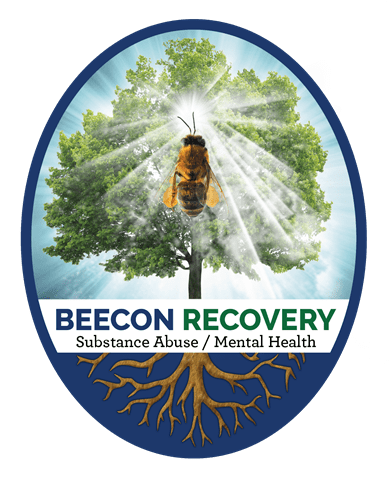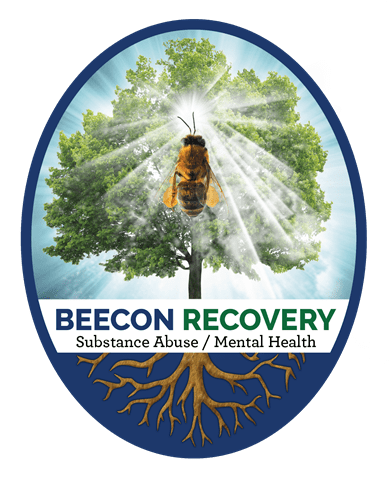Mindfulness and meditation are invaluable tools for promoting mental well-being in addiction recovery. Mindfulness involves cultivating awareness of the present moment without judgment, while meditation encompasses various practices aimed at calming the mind and enhancing inner peace. These practices help individuals manage stress, regulate emotions, and develop self-awareness, all of which are essential for navigating the challenges of recovery.
Understanding thoughts and feelings at a deeper level can help individuals identify triggers and cravings more effectively and make healthier choices. Mindfulness and meditation can also provide a sense of stability among the ups and downs of addiction recovery. Ultimately, these practices offer a pathway to healing, mental clarity, emotional balance, and purpose in recovery.

Understanding Mindfulness and Meditation
Mindfulness involves being present in the moment, observing thoughts and sensations without judgment. Meditation encompasses techniques that train attention and awareness, such as focused breathing. These practices reduce stress by promoting relaxation and increase self-awareness by encouraging observation of thoughts and emotions without attachment. Through regular practice, individuals develop resilience to life’s challenges, leading to greater overall well-being and a sense of harmony within oneself and the world.
Benefits of Mindfulness and Meditation in Recovery
Here are some of the best benefits of mindfulness and meditation for individuals in addiction recovery:
Stress Reduction
Mindfulness and meditation techniques offer essential support for managing stress and anxiety, common triggers for relapse. By cultivating present-moment awareness and nonjudgmental observation of thoughts and sensations, individuals develop resilience to stressors. These practices promote inner calmness, reducing the likelihood of impulsive reactions like substance abuse. Regularly doing these practices will enhance their ability to maintain sobriety and overall well-being in addiction recovery.
Emotional Regulation
Mindfulness practices foster emotional resilience and stability by encouraging nonjudgmental awareness of difficult emotions. Through mindfulness, individuals learn to observe emotions without reacting impulsively, and develop the ability to sit with discomfort. By acknowledging and accepting emotions, individuals develop healthier coping mechanisms and reduce the reliance on substances for relief.
Improved Self-Awareness
Mindfulness encourages self-reflection and awareness of thought patterns, cravings, and triggers. Individuals can gain insights into habitual behaviors and automatic reactions through mindfulness practices. This heightened awareness enables them to recognize cravings and triggers as passing feelings, which empowers them to respond with mindfulness rather than impulsivity.
Enhanced Focus and Concentration
Meditation techniques enhance concentration and cognitive function by training the mind to focus and sustain attention. By practicing meditation regularly, individuals sharpen their mental clarity and strengthen cognitive skills, and they can have clearer decision-making skills during recovery. Improved concentration allows individuals to stay present and focused on their recovery journey, while enhanced cognitive function enables them to assess situations more effectively and make informed choices aligned with their recovery goals.

Mindfulness and Meditation Techniques
Here are some simple mindfulness and mediation techniques that individuals can try out:
Breath Awareness Meditation
- Find a quiet and comfortable space to sit or lie down.
- Close your eyes and take a few deep breaths to relax.
- Shift your focus to the sensation of your breath entering and leaving your body.
- Notice the rhythm and pattern of your breath without trying to change it.
- Whenever your mind wanders, gently bring your attention back to the breath,
- Practice this for a few minutes, gradually increasing the duration as you become more comfortable.
Mindful Walking
Practice mindful walking by focusing on each step and the sensations of movement. Begin walking slowly, noticing the contact between your feet and the ground. Feel the sensations of lifting, moving, and placing each foot. Pay attention to the rhythm of your steps and the subtle movements of your body. If your mind wanders, gently bring your focus back to the present moment and the act of walking.
Gratitude Journaling
Gratitude journaling is a mindfulness practice that creates positivity in recovery. By regularly noting things an individual is grateful for, they cultivate awareness of the present moment and shift focus toward the positive. This practice promotes emotional well-being and resilience, enhancing the journey to sobriety.
These are just some of the many mindfulness and meditation practices that individuals can benefit from. As individuals experiment with them, they can find which ones resonate the most with them.

Choose Beecon Recovery
Addiction recovery is one of the most difficult things a person can go through, which is why we offer help to those looking to overcome addiction at Beecon Recovery. We offer several services to aid individuals in their recovery, including group therapy, ketamine treatment, live blood cell analysis, and more. Contact us today to get started on your life changing journey to addiction recovery.

